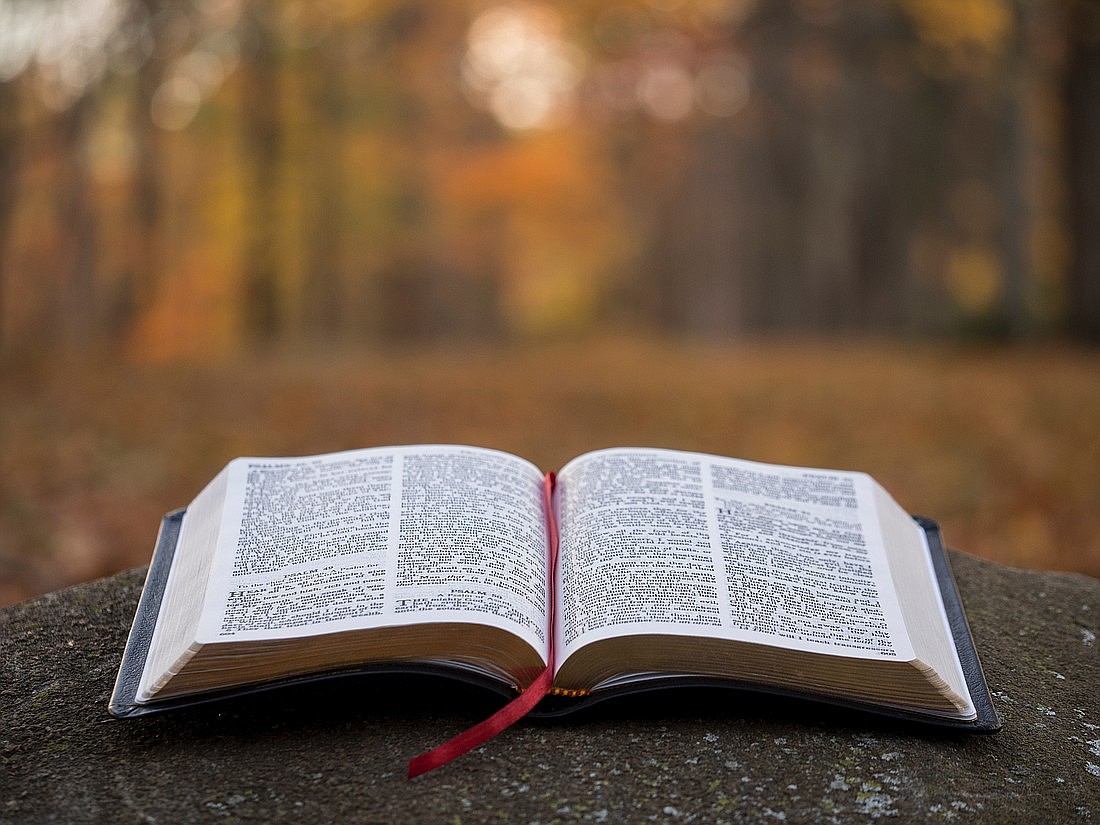November 26, 2024 at 9:16 a.m.
First Sunday of Advent
There’s a tremendous sense of urgency in the message given to us in our readings on this first Sunday of the liturgical season of Advent. The basic message is the Kingdom of God is at hand. And what is the Kingdom of God? Perhaps we might wish to adjust our interrogatory pronoun from “what” to a more appropriate “who.” Who is the Kingdom of God? It is Jesus. He is the messenger and the message; he is the teacher and what is taught; he is the preacher and what is preached. And what does Jesus come to bring — nothing less than himself — he is salvation and he manifests this salvation in his words and in his deeds.
“The days are coming,” declares the Lord, “when I will fulfill the good promise I made to the people of Israel and Judah.” — Jeremiah 33:14
And this arrival of the Messiah in the midst of Israel requires a radical recognition of the identity of Jesus as the Christ and, if we take seriously who it is that Jesus is and what it is that he stands for, then there must be a radical change in life, a true repentance. The early followers of Christ would have a real sense of the urgency of repentance in order to embrace the Kingdom of God.
As we could expect, the sense of eschatology of the four last things (death, judgment, heaven and hell) was so much greater in the early Church. These followers of the Way, who daily were risking their lives because they believed in Christ, who were considered enemies of the state due to their faith, truly believed that, at any moment, Jesus, King of Glory and Lord of the World, would descend, just as he had ascended to judge each man according to his deeds.
Naturally enough, when Jesus didn’t come back, after a year, after 10 years, after 50 years, his followers of the Way — of a religion considered a dangerous, seditious cult — began to become complacent. They settled into their daily routines and the concerns of daily life became more and more important. They began to focus on the little things of life, naturally enough, and began to miss the big picture. The Christians in Corinth, in Rome, in Ephesus, and in other places began to forget that, at any moment, the bridegroom could come again, like a thief in the night, and they could be caught wallowing in the mire of their own sin.
As history progresses, this is even more true. When the danger of being Christian seemingly fades, when Christianity becomes, in a sense, mainstream, like after the Emperor Constantine’s edict tolerating Christianity, and, indeed throughout most of Western civilization, instead of the big picture, we put our focus on the little things, as important as they might be and miss the forest for the trees.
The same is true today, even with the reality that being a Christian, in the Middle East, in Africa, and in other places, can and might get you killed. In the U.S. today, in the age of the cult of political correctness, we may not be physically killed for our faith, but we are considered completely irrelevant and the enemy by a large portion of society. We have lost that eschatological edge, and, I think, we need to reclaim it as soon as possible if we are to regain the proper focus in the Christian life.
The Protestant theologian Paul Tillch asked what is our area of ultimate concern. What did he mean by this term, “the area of our ultimate concern?” According to Tillich, true religion, defined by him as “the state of being grasped by ultimate concern,” is the area of our ultimate concern. The area of ultimate concern is that upon which we base our lives; it should be the guiding factor in all our life decisions. It should be that “pearl of great price,” that will perdure after all the other concerns of our lives, as important as they are, have faded.
So, what’s really our ultimate concern? If it’s not the salvation of our immortal soul, then we need to re-evaluate our lives. John the Baptist stands as one who reminds us of what and who our area of ultimate concern has to be — the Lord Jesus Christ. May we use this Advent season to reclaim our eschatological edge.
- Tanzania’s Cardinal Pengo remembered as giant of faith, a ‘towering presence’ for Africa
- Bishops urge prudence, prayer, invoke Guadalupe’s protection as violence erupts in Mexico
- St. Francis’ relics open to public for first extended veneration in 800 years
- ‘We will grow in wisdom, holiness together,’ new bishop of Tucson, Ariz., tells faithful
- Pope renews ‘heartfelt appeal’ for ‘immediate ceasefire’ in Russia-Ukraine war
- Full text: Pope Leo XIV’s Angelus address given February 22, 2026
- God offers new possibilities, not prohibitions, with his invitation to love, pope says
- Find comfort, strength in Eucharist, pope tells attendees at LA Religious Education Congress
- Pope Leo XIV tells priests not to use AI to write homilies or seek ‘likes’ on TikTok
- Historical novel pitches Christian compassion against ideologies of hatred








Comments:
You must login to comment.